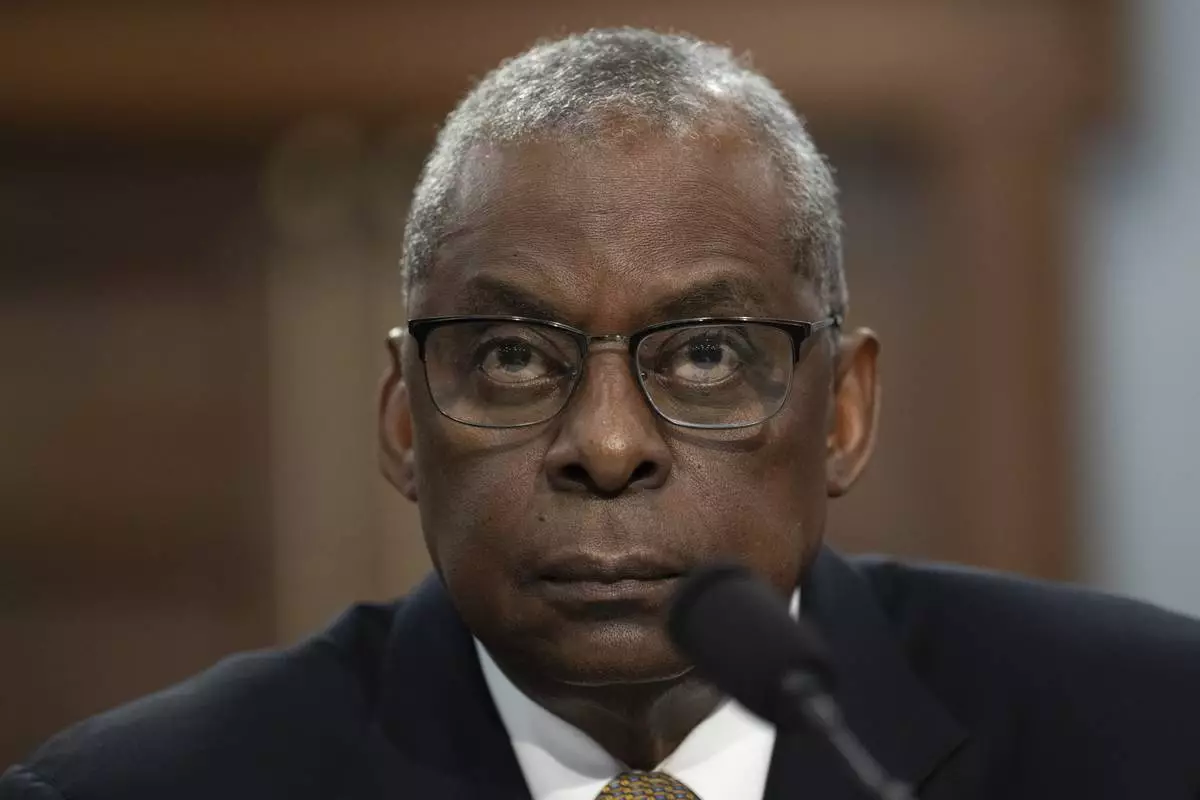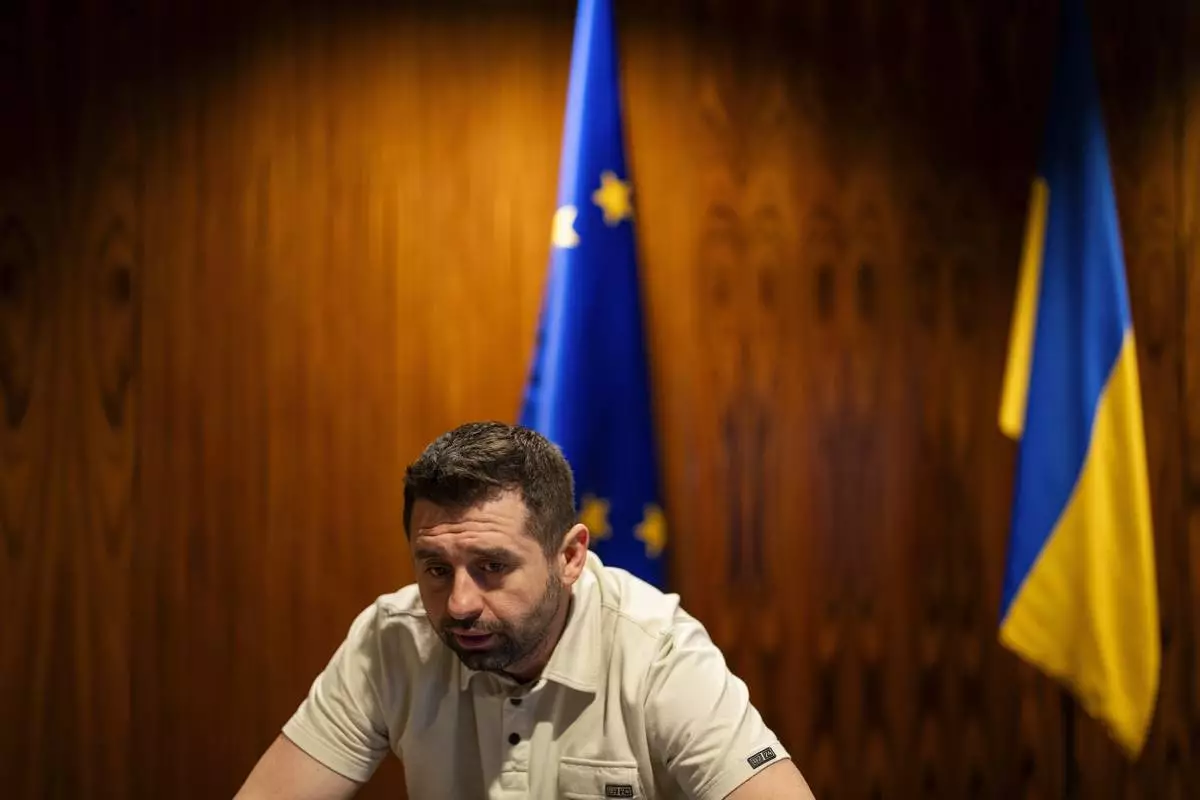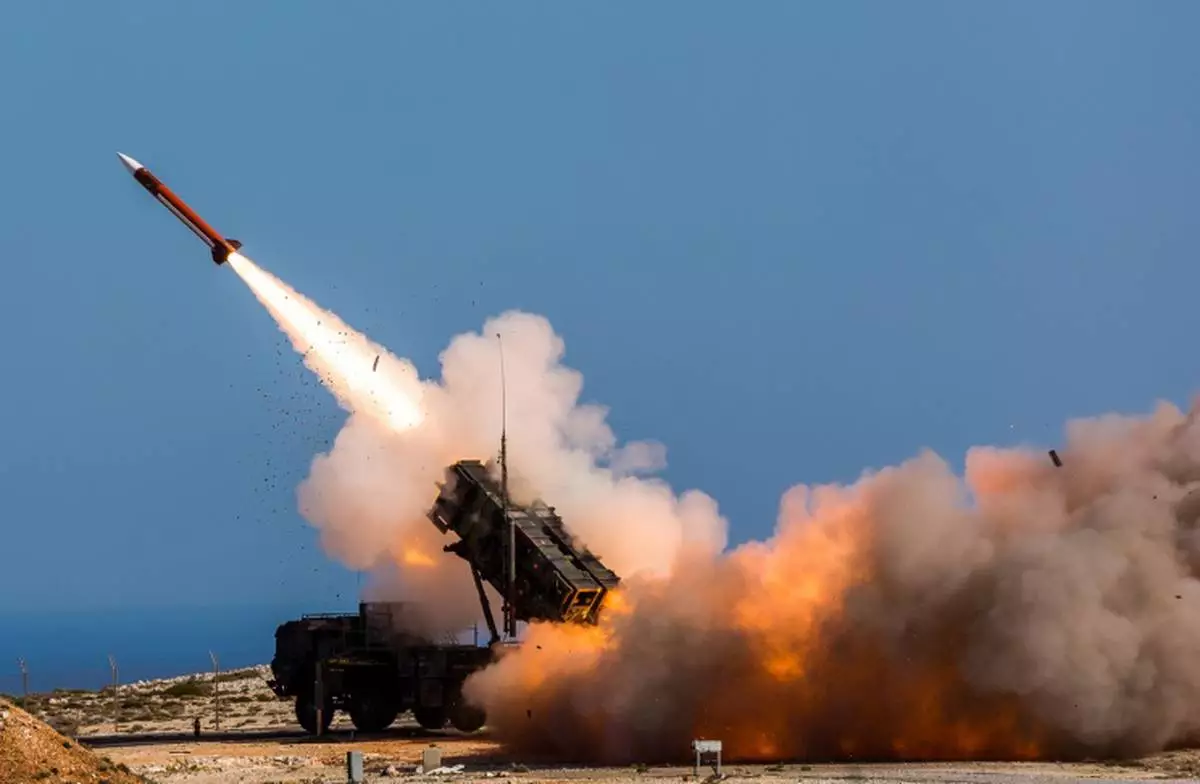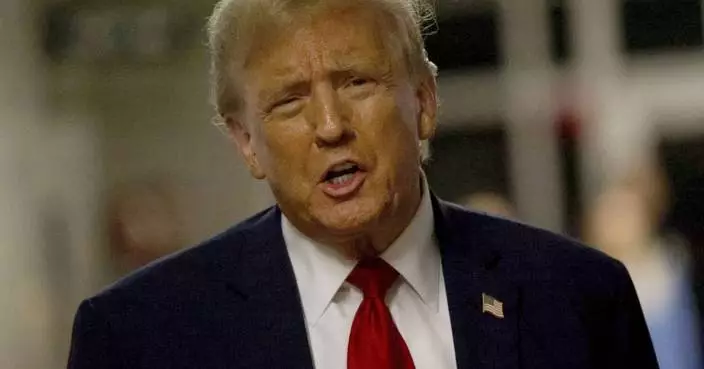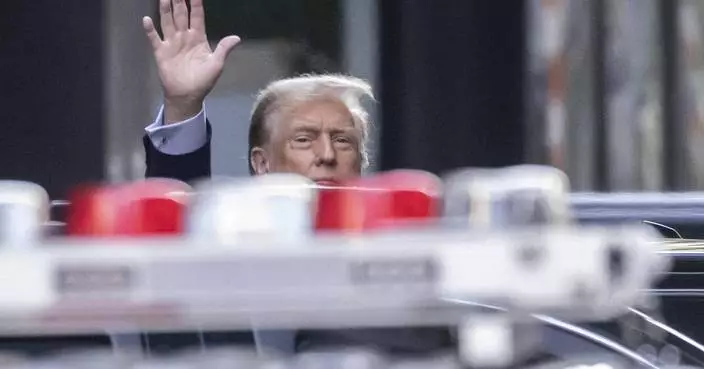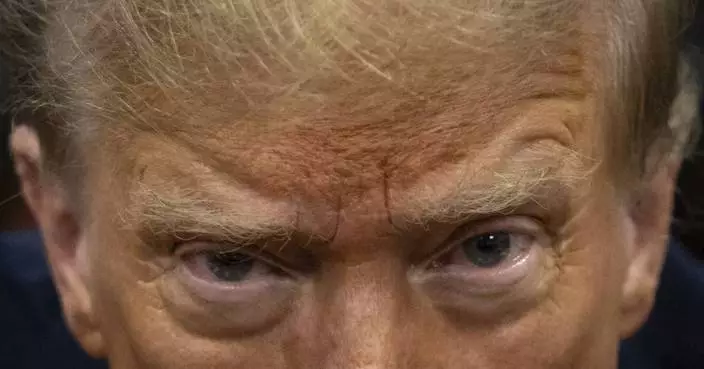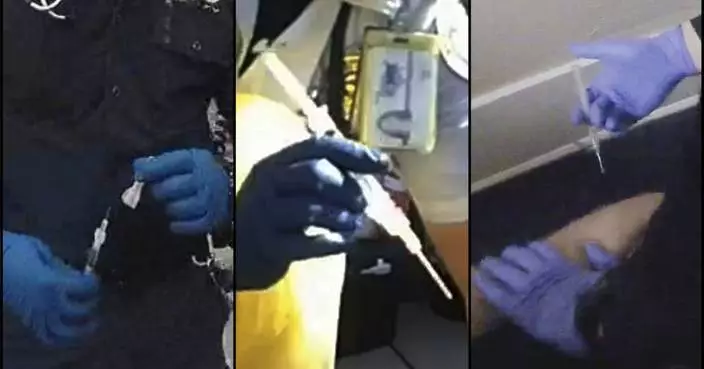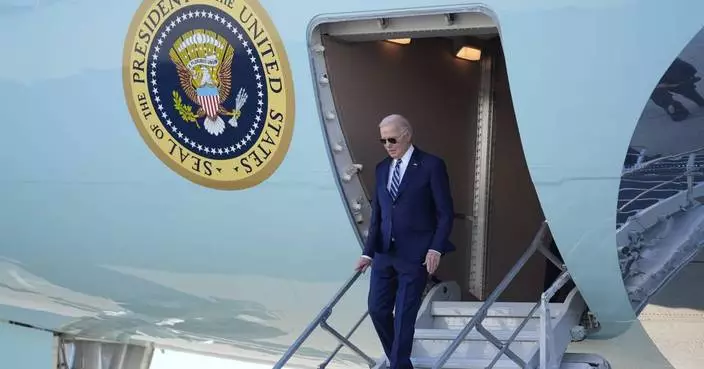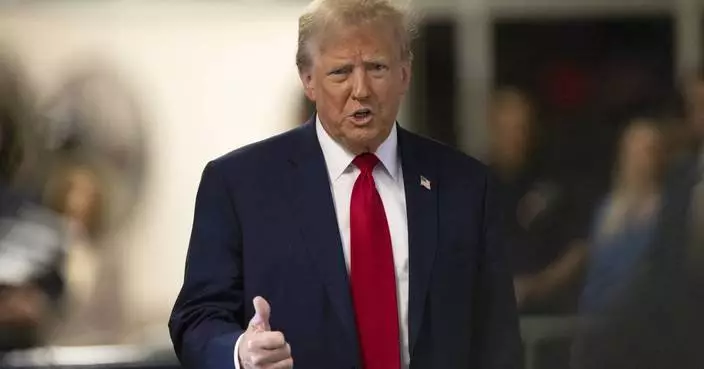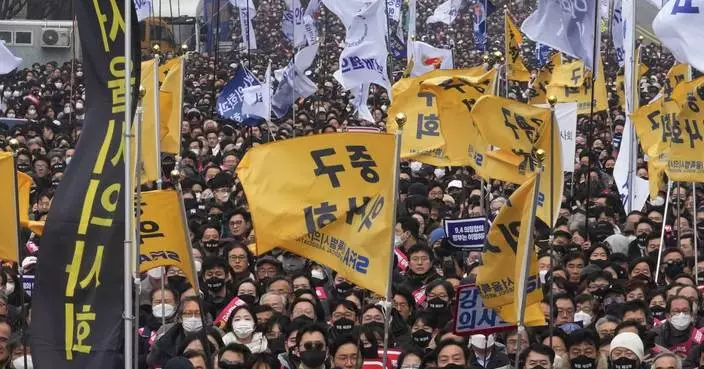North Korea said Friday that it's still willing to sit for talks with the United States "at any time, (in) any format," a remarkably restrained and diplomatic response, from a nation noted for its proud belligerence, to U.S. President Donald Trump's abrupt cancellation of a summit with the North's autocratic leader, Kim Jong Un.
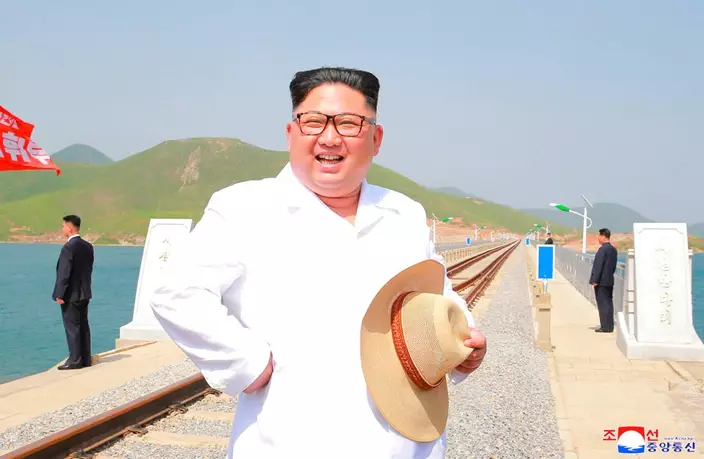
In this undated photo provided on Friday, May 25, 2018, by the North Korean government, North Korean leader Kim Jong Un inspects the completed Koam-Tapchon Railways in Gangwon-do, North Korea. Independent journalists were not given access to cover the event depicted in this image distributed by the North Korean government. The content of this image is as provided and cannot be independently verified. Korean language watermark on image as provided by source reads: "KCNA" which is the abbreviation for Korean Central News Agency. (Korean Central News Agency/Korea News Service via AP)
The statement by Vice Foreign Minister Kim Kye Gwan, a longtime nuclear negotiator and senior diplomat, which said the North is "willing to give the U.S. time and opportunities" to reconsider talks that had been set for June 12 in Singapore, could be driven by a need to use the summit to ease crushing international sanctions, or by a determination that a summit with the mercurial Trump is the best opportunity the North will ever have to elevate itself, and its nuclear program, to equality with its archrival. One analyst marveled that the North Korean response was "close to an apology letter."
Regardless of the motivation, Kim Kye Gwan's statement is the latest whiplash development in efforts to diplomatically address what might be the world's most dangerous standoff. Focus will now swing back to how Trump will respond to the North's seemingly conciliatory gesture.
The stakes are high. A scrapping of diplomacy could see a return to the torrent of weapons tests — and the fears of war they created — that North Korea unleashed last year as it sought to put the finishing touches on a nuclear-armed missile program meant to target the entire U.S. mainland. Since January, Kim has taken a radically softer approach to foreign affairs, sending his sister to the Olympics in South Korea, meeting with his South Korean counterpart on their shared border and exploding parts of his nuclear testing site Thursday in an apparent sign of good faith. The Singapore summit would have been the culmination of this outreach.
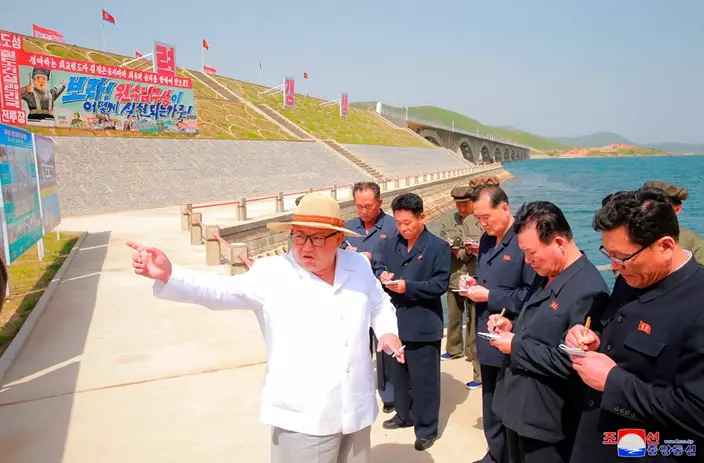
In this undated photo provided on Friday, May 25, 2018, by the North Korean government, North Korean leader Kim Jong Un inspects the completed Koam-Tapchon Railways in Gangwon-do, North Korea. Independent journalists were not given access to cover the event depicted in this image distributed by the North Korean government. The content of this image is as provided and cannot be independently verified. Korean language watermark on image as provided by source reads: "KCNA" which is the abbreviation for Korean Central News Agency. (Korean Central News Agency/Korea News Service via AP)
Earlier comments by South Korean President Moon Jae-in, seen as a driving force behind the summit and just returned to Seoul from a meeting with Trump in Washington, suggested that the South, a top U.S. ally and host to 28,500 U.S. troops, was blindsided by Trump's statement. Moon said he was "perplexed" at Trump's announcement that he was canceling the summit because of what the U.S. president said was North Korea's "tremendous anger and open hostility." Moon urged direct talks between Trump and Kim to get things back on track.
Many observers had expected a belligerent North Korean response to Trump's cancellation, but the comments by Kim, the North's vice foreign minister, seemed, at times, almost meek, and in stark contrast to the bellicose declarations last year of the North's willingness to pursue nuclear war.
Kim said Pyongyang's "objective and resolve to do our best for the sake of peace and stability of the Korean Peninsula and all humankind remain unchanged." Kim said the cancellation of the talks shows "how grave the status of historically deep-rooted hostile North Korea-U.S. relations is and how urgently a summit should be realized to improve ties."
"As far as the historic (North Korea)-U.S. summit is concerned, we have inwardly highly appreciated President Trump for having made the bold decision, which any other U.S. presidents dared not, and made efforts for such a crucial event as the summit," Kim said. "His sudden and unilateral announcement to cancel the summit is something unexpected to us and we cannot but feel great regret for it."
Kim speculated that Trump may have "lacked the will for the summit or he might not have felt confident," but that the North has "exerted sincere efforts" for talks that "would mark a meaningful starting point for peace and security in the region and the world."
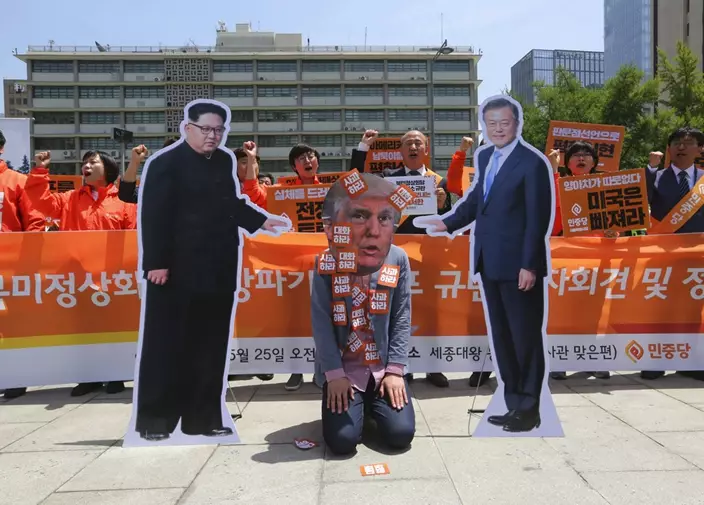
A protester wearing a mask of U.S. President Donald Trump, center, performs with cut-out photos of North Korean leader Kim Jong Un and South Korean President Moon Jae-in, right, during a rally against the United States' policies against North Korea near the U.S. embassy in Seoul, South Korea, Friday May, 25, 2018. North Korea said Friday that it's still willing to sit down for talks with the United States "at any time, at any format" just hours after President Donald Trump abruptly canceled his planned summit with the North's leader Kim Jong Un. The signs read " Apology." (AP Photo/Ahn Young-joon)
Kim Dong-yub, a North Korea expert at Seoul's Institute for Far Eastern Studies, said the North Korean response was notably "courteous, reserved and diplomatically refined," which he said shows that Pyongyang is eager to talk with Washington and believes that the United States needs more time to prepare for the summit.
Trump's cancellation of the summit came amid mounting skepticism about the North's sincerity after the country's earlier threats to scrap the Kim-Trump summit. That may have been aimed at bolstering its negotiating position, rather than killing the meeting.
"They wanted to face the United States in a more confident position. Obama or (Bill) Clinton could have accepted (these kinds of North Korean statements). But it's Trump. He's decided not to enter talks while being pushed (by North Korea) like this," said Choi Kang, vice president of Seoul's Asan Institute for Policy Studies.
Koh Yu-hwan, a professor at Seoul's Dongguk University, said Kim's statement was "close to an apology letter."
The North might have also sensed an opening in Trump's seemingly mixed messages.
"I really believe Kim Jong Un wants to do what's right," the U.S. president said at one point. Trump also said from the White House that a "maximum pressure campaign" of economic sanctions and diplomatic isolation would continue against North Korea — with which the U.S. is technically still at war — but he added that it was possible the summit could still take place at some point.
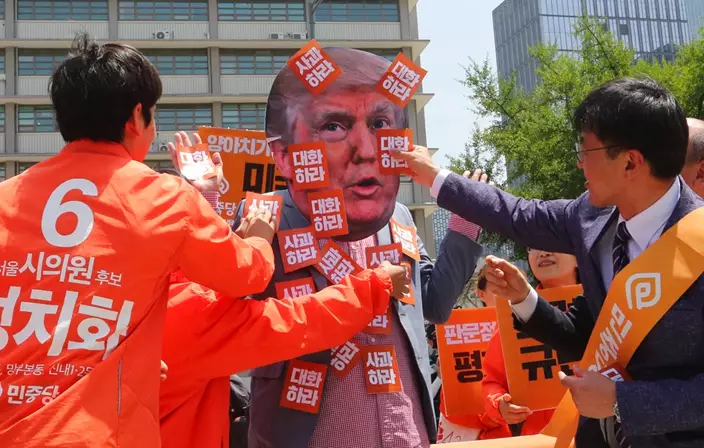
Protesters attach stickers at their fellow protester wearing a mask of U.S. President Donald Trump during a rally against the United States' policies against North Korea near the U.S. Embassy in Seoul, South Korea, Friday May 25, 2018. North Korea said Friday that it's still willing to sit down for talks with the United States "at any time, at any format" just hours after President Donald Trump abruptly canceled his planned summit with the North's leader Kim Jong Un. The signs read " Apology." (AP Photo/Ahn Young-joon)
In his statement to the North, Trump said: "If you change your mind having to do with this most important summit, please do not hesitate to call me or write."
It was unclear whether Trump was engaged in what he saw as a negotiating ploy or if his moves were a manifestation of mounting internal concerns over ensuring a successful outcome for the summit.
While the statement may keep the possibility of a summit alive, there were also hints in North Korea's response to Trump that Pyongyang was willing to walk away.
Kim said the United States is at fault for what Trump described as North Korea's "hostility," saying that Pyongyang was responding to "excessive" U.S. comments pressuring the country to "unilaterally discard" its nuclear weapons ahead of the summit. Trump's move to cancel the summit has forced the North to "rethink whether the efforts we have so far put in and the new path we have taken is the right choice."
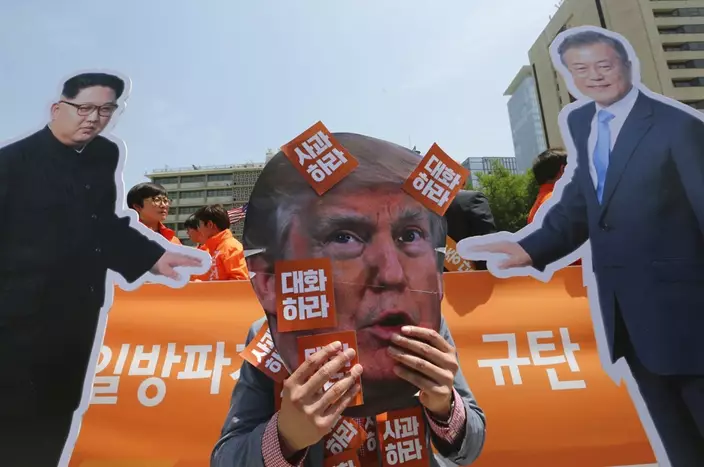
A protester wearing a mask of U.S. President Donald Trump, center, performs with cut-out photos of North Korean leader Kim Jong Un and South Korean President Moon Jae-in, right, during a rally against the United States' policies against North Korea near the U.S. embassy in Seoul, South Korea, Friday, May 25, 2018. North Korea said Friday that it's still willing to sit down for talks with the United States "at any time, at any format" just hours after President Donald Trump abruptly canceled his planned summit with the North's leader Kim Jong Un. The signs read " Apology." (AP Photo/Ahn Young-joon)
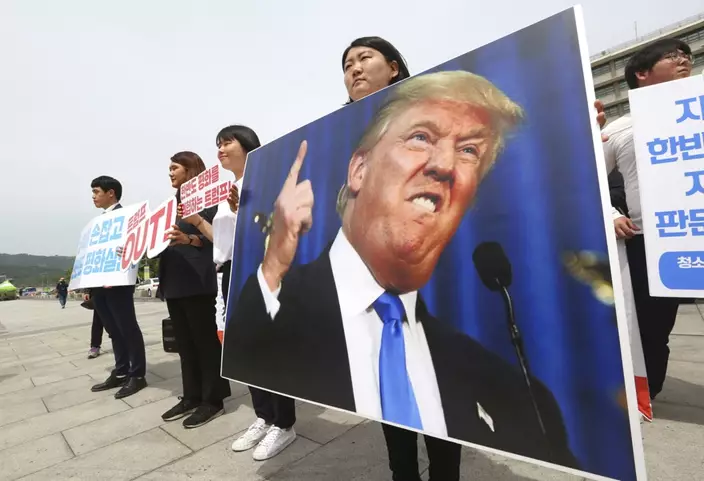
Protesters with a portrait of U.S. President Donald Trump stage a rally against the United States' policies near the U.S. embassy in Seoul, South Korea, Friday, May 25, 2018. North Korea said Friday that it's still willing to sit down for talks with the United States "at any time, at any format" just hours after President Donald Trump abruptly canceled his planned summit with the North's leader Kim Jong Un. (AP Photo/Ahn Young-joon)



